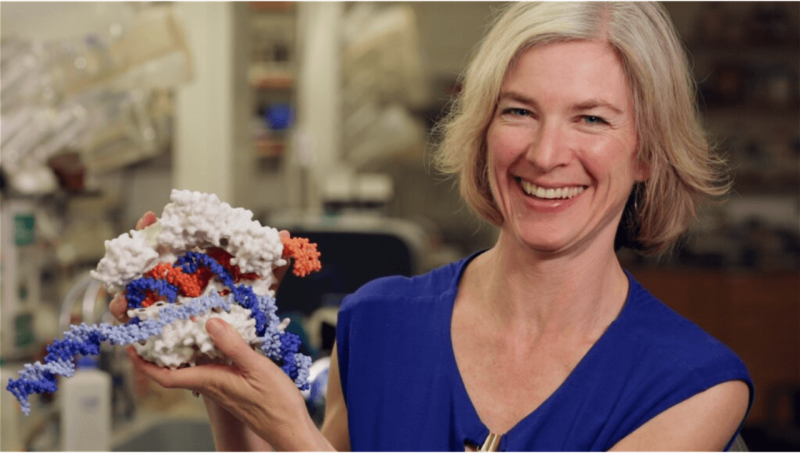In a life-changing collaboration with the French scientist Emmanuelle Charpentier, we figured out how the chemistry of this process could be harnessed not to destroy viral DNA, but to cut the genome with unprecedented ease and accuracy in virtually any cell. This niche discovery has spurred an entire biotech revolution of its own. In animal and plant cells, cutting DNA with CRISPR-Cas9 allows us to turn some genes off and to turn others on.
An FDA-approved edit to cattle genes re-creates a slick coat, occasionally found in nature, that allows cows to tolerate increasing temperatures; using CRISPR to breed a tomato variety, approved for sale in Japan, has enhanced its nutritional qualities. For other crops, CRISPR is being used to increase yield, reduce pesticide and water use, and protect against disease.
…
Sometimes, when I think about my part in all this, I am overcome. Few scientists get to experience what I have. And while I’m immeasurably pleased by the progress that’s happened since the publication of our first CRISPR-Cas9 paper a decade ago, I also feel a continual sense of urgency: Are we dreaming big enough? Moving quickly enough?
…
Ensuring that CRISPR reaches its full potential for clinical applications and beyond will require an even higher level of intentional building with diverse and dedicated collaborators. Governments, universities, and investors will need to make significant and sustained investment in cutting-edge science at labs and at biotechnology companies, as well as investments in infrastructure and manufacturing to ensure that this work is scalable. With this kind of concerted and collective effort, the applications and benefits of CRISPR could become as accessible, commonplace, and useful as the phones in our pockets.
Jennifer Doudna is a UC Berkeley biochemist, founder of the Innovative Genomics Institute, and a Nobel Prize-winning co-inventor of CRISPR gene-editing technology.































